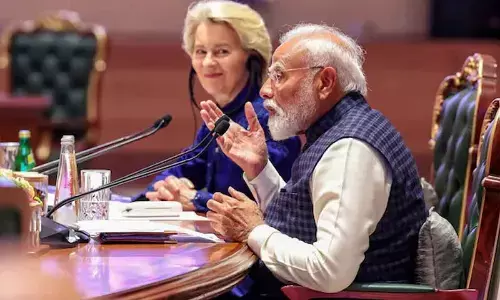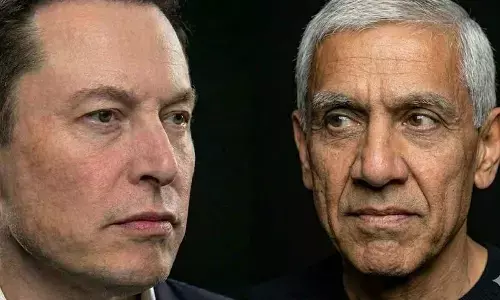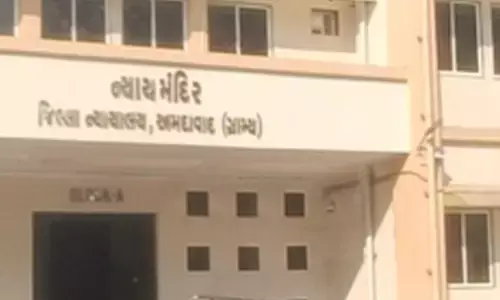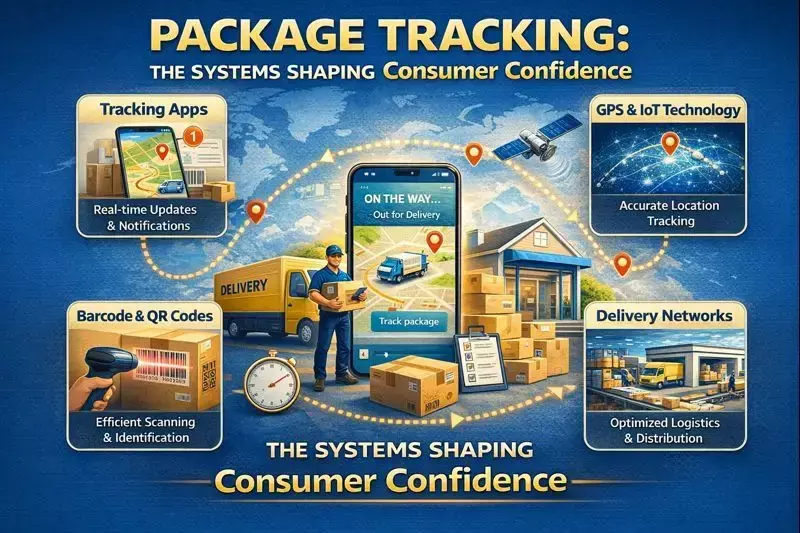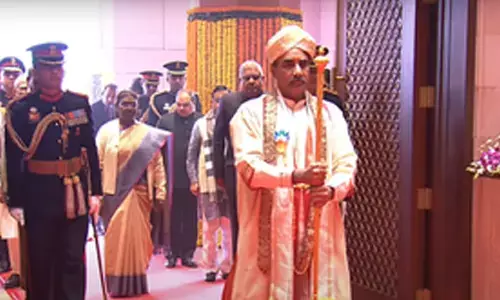James Dyson Award 2021: Three Winners with World-Improving Inventions
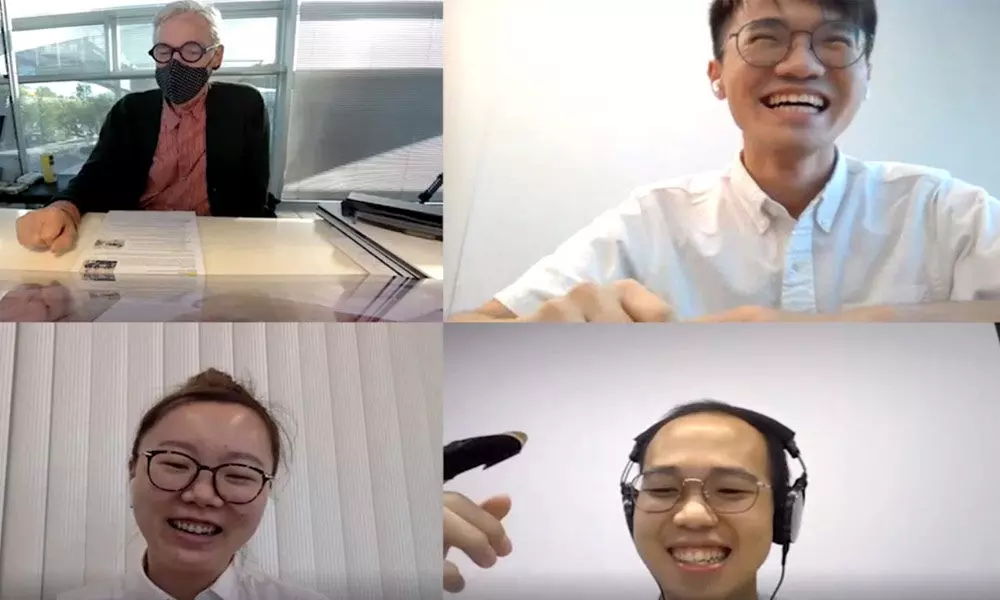
James Dyson Award 2021: Three Winners with World-Improving Inventions
The James Dyson Award has now given nearly £1m in prize money to over 250 promising inventions from young engineers and scientists in 28 countries around the world.
HOPES, A device for pain-free, at-home eye pressure testing, opening up access to glaucoma testing, by students of the National University of Singapore.
Plastic Scanner, A low-cost, handheld device to identify plastic for recycling, by Jerry de Vos from TU Delft.
REACT, A device to stem bleeding to help save the lives of stabbing victims, by Joseph Bentley from Loughborough University.
The James Dyson Award has now given nearly £1m in prize money to over 250 promising inventions from young engineers and scientists in 28 countries around the world. In 2021, the Award received a record number of entries worldwide and Sir James Dyson chose three global winners for the first time, each receiving £30,000 in prize money to support the next stages of their inventions.
Commenting on this year's competition, Sir James Dyson said,
"I enjoy seeing the enthusiasm with which young people tackle the world's problems using good design, engineering and science. So promising were this year's entries that we've awarded the third prize, focused on the medical invention. Commercialising an idea is very hard – I hope that the awareness that the Award drives, as well as the financial support it provides, will give these ideas a springboard to success."
The Winning Inventions
International Winner – HOPES, designed by Kelu Yu, Si Li and David Lee
The problem
This year's International winner of the James Dyson Award was inspired by one of the inventors', Kelu, father's diagnosis of glaucoma. After witnessing his discomfort and multiple hospital visits, she realised there is a global need for a less invasive and more accessible method for Intraocular Pressure (IOP) monitoring. Glaucoma is the second leading cause of blindness worldwide. In India, approximately 11.2 million persons aged 40 years and older have glaucoma. The estimated number with primary angle-closure glaucoma is 2.54 million. Because it is largely symptom-free, it's also known as the "silent thief of sight"
The solution
HOPES, (which stands for Home eye Pressure E-skin Sensor) is a wearable biomedical device for pain-free, low cost, at-home IOP testing. Powered by patent-pending sensor technology and artificial intelligence, HOPES is a convenient device for users to frequently self-monitor IOP.
Next steps
The team plan to collaborate with clinicians at the National University Hospital to collect and analyse patients' eye pressure data to train the device's machine learning mode. At the same time, they are working on optimising HOPES' performance and improving its design.
On winning the James Dyson Award International prize, the team say, "We were thrilled to hear from Sir James Dyson that we are this year's International winners of the James Dyson Award. For us this all started with Kelu and her attempt to create a solution for her father after the problem they faced as a family. With this win, we hope in the future people can measure their eye pressure in a pain-free, at-home environment. We want to improve people's quality of life and aspire to one day apply our research group's sensor technology across different health monitoring applications, such as robotics and biomedical devices."
Sustainability winner – Plastic Scanner, invented by Jerry de Vos
The problem
Plastic is a lightweight, safe and readily available material that can be used to make long-lasting, durable products. It has a bad reputation because it is often not thought to be recyclable and so ends up in landfill, or worse on the beach or in our oceans. However, with the right technologies, plastics can be widely recycled successfully at end of life and transformed into new products, which themselves are long-lasting and durable.
The challenge is identifying the plastic so that it can be recycled in the correct way, rather than sent to landfills. The technology exists but is expensive and rare. With greater availability of plastic identification much more plastic can be recycled and therefore used more effectively.
The solution
The Plastic Scanner, invented by Industrial and Product Design graduate Jerry De Vos from the Netherlands, is this year's Sustainability winner. A plastic Scanner is a handheld device that when held against plastic will tell the user what materials it's made from, using infrared light to detect the plastic components.
Jerry learnt that much plastic entering our oceans comes from low and middle-income countries. It is his mission to support recycling initiatives in these nations with the way he designed the low-cost and ease of use of the Plastic Scanner. During development, Jerry interviewed recyclers from India, Indonesia, Kenya and Curacao to ensure his model was suitable for end-users.
Next steps
Jerry has gathered a team of friends specialising in embedded systems and machine learning to support his creation of new prototypes and pilot the Scanner in both industry and low resource contexts. Long-term his goal is to make the project sustain itself, with DIY versions of the Scanner, whilst enriching Open-source documentation to make it easier for others to get involved and contribute to his mission.
Medical winner – REACT, invented by Joseph Bentley
The problem
Knife crime is an issue in many countries around the world and last year, with rates of knife crime were on the rise in almost all continents, particularly in countries with strict gun laws. In India, a total of 10,47,216 cases of offences affecting the human body were registered which accounted for 24.6% of total IPC crimes.
The average wait time for an ambulance in India is currently within 15 minutes, yet it can only take five minutes for someone to bleed to death.
The solution
The REACT device (which stands for Rapid Emergency Actuating Tamponade) aims to reduce catastrophic blood loss from a knife wound. The current advice for treating stab wounds is to never remove the knife object from the wound if it is still in place. This is because the object is applying internal pressure to the wound site whilst also filling the cavity and preventing internal bleeding. Joseph's concept is based on the same principle, the implantable medical-grade silicone balloon tamponade would be inserted into the wound tract by a first responder. The actuator device is connected to the tamponade valve, and the user selects the wound location on the device interface. Squeezing the trigger on the actuator starts the automated inflation sequence, and the tamponade is inflated to a defined pressure based on the wound location to try and stem the bleeding.
Next steps
"I am beyond words in describing my gratitude in receiving this global prize dedicated to a medical innovation. Knife crime is horrific and a global challenge that is claiming the lives of thousands every year. The REACT system has the potential to be a life-saving tool in the fight against knife-crime, but the development of medical devices is a long and challenging process. The recognition and funding provided by the James Dyson Award has given me the determination and confidence to develop the REACT system and getting it into the hands of first responders as soon as possible." Says Joseph after learning the good news from James Dyson.
Please find below the quote from the Indian Winner:
Deval Karia, the inventor of LifeBox, said:
"India has an abysmal rate of 200 heart transplants annually, despite a staggering 50,000 people in need. Institutional factors aside, the inability to move hearts from a donor to the recipient is a major hindrance to bridging this gap."
"The project has its genesis in a course taught by Prof. B. Gurumoorthy, Prof. A. Ghosal at CPDM, with a vision to explore drones for organ transportation. However, we soon realized that without active preservation techniques, drones will not do much to improve the rate of heart transplants in India. This led to a shift in focus: A portable system that can extend the out-of-body viable time of the heart."
On his future plans with the LifeBox project:
"We've recently received support from BIRAC to further develop the device and conduct a pilot clinical investigation. Eventually, we intend to make parts of the device designs available open-source, allowing multiple players the freedom to operate and test the device independently."








